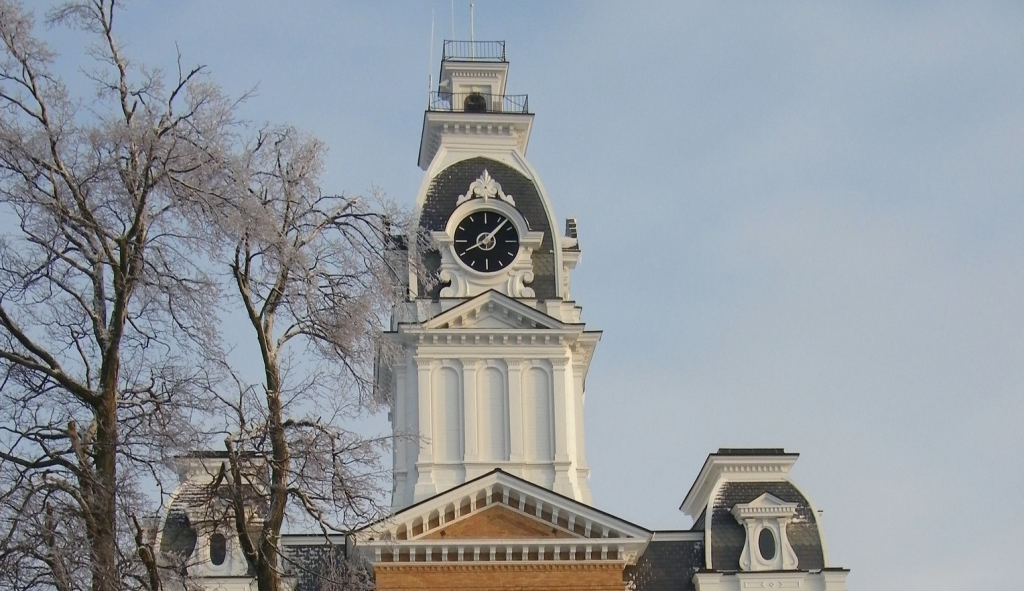

The rise of civilizational Christian colleges
I teach at a small Christian college, and part of my job involves meeting with prospective students and their families. As I sit in my office helping these students imagine life at our college, I am mindful of our market rivals, which usually fall into one of two categories. First, there are other Christian colleges with their varied levels of academic seriousness, ideas about student conduct and piety, and commitments to the integration of faith and learning. Second, there is the broad swath of state or “secular” universities, which Christian colleges have long positioned themselves against as natural alternatives in terms of both culture (impersonal vs. intimate) and perspective (secular vs. Christ-centered).
But there is a third category lurking in the background that contains a single school with a singular mission, one that I am never surprised to learn that families sitting in my office are considering: Hillsdale College. Hillsdale is the flagship institution of the conservative political movement. Families visiting our college are not only committed Christians but they often also lean right politically.
Founded in southern Michigan in 1844 by Free Will Baptists, Hillsdale gradually shed its sectarian distinctives and drifted toward what seemed likely to become just another small, unremarkable midwestern “church-related” college. A turning point for Hillsdale came in the early 1960s when trustees raised concerns about an expanding federal reach (i.e., civil rights legislation) into local college decisions regarding enrollment, curriculum, and other policies. A spirit of fierce independence began to germinate; it blossomed under the transformative leadership of George Roche III who, appointed president in 1971, would serve in that role until 1999.
These were defining decades for the school. More than anyone else, Roche turned Hillsdale into a bastion of conservative political thought and a model of anti-government resistance. He famously led the school’s withdrawal from all programs of federal and state aid, which likewise freed it from strictures and requirements that accompany the acceptance of government support. These moves generated cries of jubilation from all quarters of the American conservative movement, significantly raising its national profile. They were also rocket fuel for its fundraising operation, which had become essential for making up losses in federal financial aid.
Hillsdale became a darling of the right in the Reagan eighties and the Gingrich nineties, a symbolic outpost of resistance to everything conservatives despised about the liberal capture of American higher education. It celebrated traditional, classical learning with a spirit of patriotism, limited government, and free market capitalism. By the end of Roche’s tenure, Hillsdale had become as much an emblem of the conservative movement as the Heritage Foundation or National Review.
Until recently, I had no trouble navigating questions from families about what made Covenant (my employer) different from Hillsdale. The lines were clear. Though some insist on linking conservative theology to conservative politics (and economics), the two are neither synonymous nor interchangeable. While Hillsdale offers a friendly environment for Christians, the school was neither explicitly Christian in its core commitments nor exclusively Christian in its hiring/admissions practices. I could understand why families would be attracted to both schools, but each was driving in its own distinct lane.
All of this began to change a few years ago. In the mid-2010s, Hillsdale began receiving heightened media exposure as its president, Larry Arnn, became a vocal Trump supporter and began coordinating with others to supply “Trumpism” with a (supposedly) coherent intellectual framework. Alongside these efforts, Arnn lent the name and resources of Hillsdale to efforts at giving American school children an alternative to “woke” education, pushing the school deeper into the center of the nation’s culture wars. None of this was surprising to me. What did catch me off guard, however, was hearing Hillsdale described in those media reports as “a small Christian college.”
At first I assumed that the national media had mistakenly conflated conservative politics with Christian higher education (thank you, Liberty University). But I was wrong. It turns out that Hillsdale itself decided to begin calling itself “Christian” around this time. Nothing had changed in its core commitments, its hiring practices, its admissions criteria (no statement of faith is required for either), or its core curriculum. But suddenly Hillsdale was “Christian.”
I will admit to feeling more than a little cynical after learning about this rebranding. It is true that Hillsdale has Christian roots and has long claimed fidelity to “the Judeo-Christian tradition.” But why add the label now? If anything, Hillsdale is more strongly defined by right-wing political activism than at any point in its history. I fear that the label “Christian,” rather than moderating Hillsdale’s extreme culture war politics, gives its efforts a kind of divine sanction and amplification. And many families like those sitting in my office are sure to expect the same from colleges like mine.
Hillsdale is of course free to call itself a “Christian college.” And there might even be some non-cynical reasons that led them to make this move. But given the storied heritage of institutions like mine that have long worn this label, let me try to make a basic distinction between what we mean by the term and what I think they mean.
I have found it helpful to distinguish between “confessional” and “civilizational” Christian colleges. Confessional Christian colleges like Covenant (and those in the Council of Christian Colleges and Universities) are “Christian” in the sense that their faculty (and sometimes their students) submit to clear statements of faith. Do these statements of faith have “civilizational” (i.e., real world) implications? Indeed! But they are less prescribed and more open to debate.
At its best, I believe that Hilldale is a civilizational Christian college, which is to say “Christian” in a different sense: in acknowledging and honoring the strategically important role the faith played in laying the foundations of both Western Civilization and the American Founding, both key components of Hillsdale’s mission and ethos. While many at Hillsdale also embrace Christianity in a confessional sense, one need not do so to appreciate and honor the faith as a pillar of these highly valued cultural formations. And because faith is “honored” rather than necessarily believed, less time and attention are given to using Christian insights to critique things like Western Civilization and the American Founding (or one particular side in today’s raging culture war).
Being “confessional” and “civilizational” are not mutually exclusive. As I indicated, all confessional claims will have civilizational implications. The question is always which of the two are given priority. At Hillsdale, faculty members are not required to believe that Christianity is true, but they are asked to respect its heritage. At places like Covenant, we are required to believe it and are much freer both to honor its heritage and to speak critically of its mixed legacies.
My greatest concern is the lasting impact this turn toward civilizational Christian higher education will have on the mission of confessional Christian colleges. As Christian nationalism grows more attractive and widely accepted, some colleges are feeling pressure to shift toward defining themselves by their civilizational rather than their confessional priorities. I’m guessing that development offices find it easier to raise money for a college actively committed to saving Western Civilization than for one that promises only to walk in the way of Jesus. If the current market for “Making America Great Again” among Christians is any indication, we who teach at Christian colleges have some tough office conversations ahead of us.
Jay Green is Professor of History at Covenant College. His books include Christian Historiography: Five Rival Versions and Confessing History: Explorations of Christian Faith and the Historian’s Vocation (edited with John Fea and Eric Miller). He is Managing Editor of Current.
Spot on, as they say.
Hear, hear! Hillsdale is belatedly recognizing the headlong rush of American evangelical Christianity toward a populist political cultism, with its lucrative promises of donor dollars and enrollment numbers, and in true capitalistic fashion, they want their cut.
Thank you for capturing the distinction. It is not a fine one. A wolf in sheep’s clothing. Politics with a touch of “American” Christianity, when it’s convenient. Their wokist finger pointing has other names: False witness bearing; Fear mongering; Self -serving.